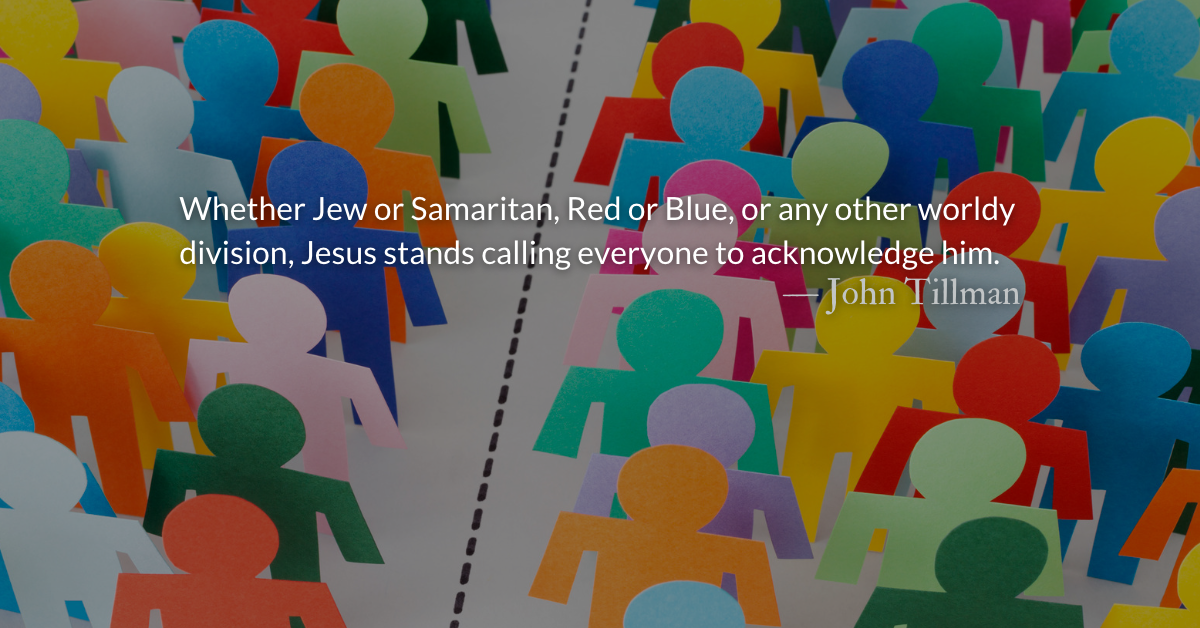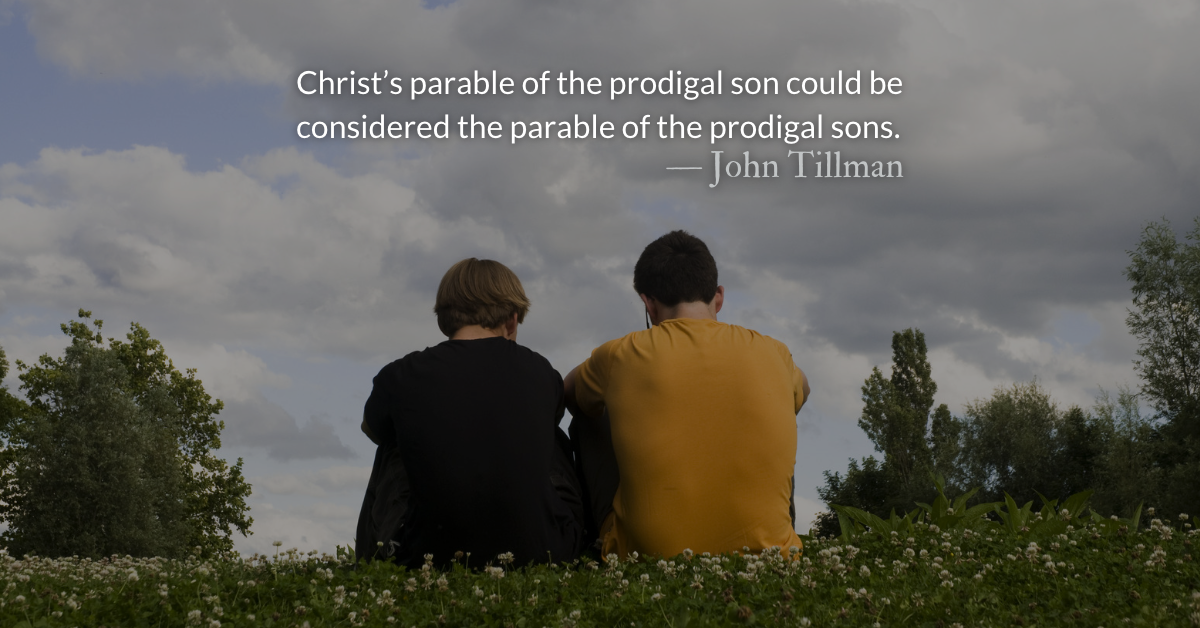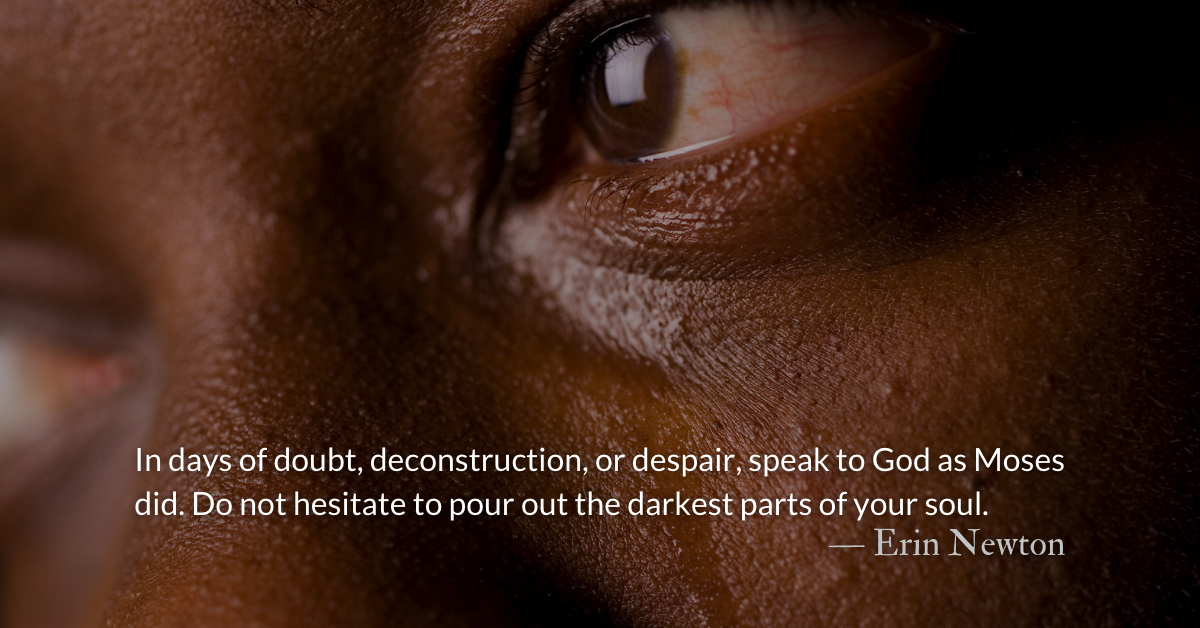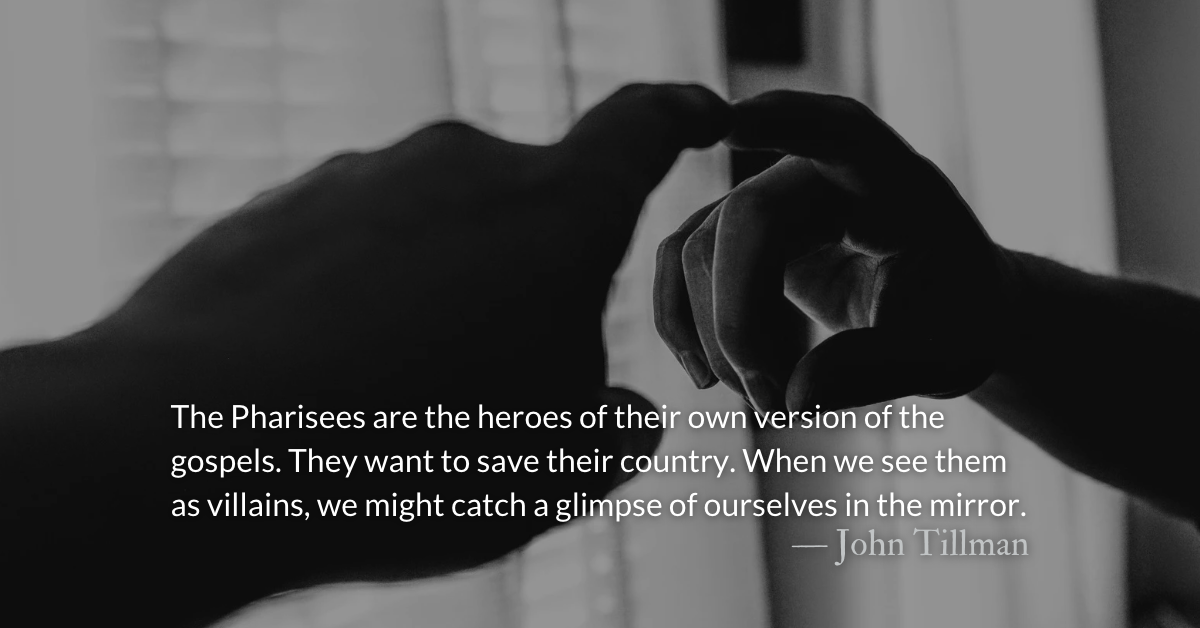Scripture Focus: Luke 17.11-19
11 Now on his way to Jerusalem, Jesus traveled along the border between Samaria and Galilee. 12 As he was going into a village, ten men who had leprosy h met him. They stood at a distance 13 and called out in a loud voice, “Jesus, Master, have pity on us!”
14 When he saw them, he said, “Go, show yourselves to the priests.” And as they went, they were cleansed.
15 One of them, when he saw he was healed, came back, praising God in a loud voice. 16 He threw himself at Jesus’ feet and thanked him—and he was a Samaritan.
17 Jesus asked, “Were not all ten cleansed? Where are the other nine? 18 Has no one returned to give praise to God except this foreigner?” 19 Then he said to him, “Rise and go; your faith has made you well.”
Reflection: Jesus on the Border
By John Tillman
The lepers healed “as they went” is a miracle I’ve often tried to picture… What must that have been like? Devout Jews knew that one showed oneself to the priest when healed of dangerous diseases. This protected the community and enabled immediate praise to God for healing. But Jesus sent them before he healed them!
Imagine that. Jesus says, “go,” but nothing happens. He just points toward the Temple. So you go, trudging toward the city, knowing that before you get there someone will chase you away, cursing you for coming too close. Then, as you walk, you feel stronger. With each step, deadened skin tingles and comes back to life. You remove the rough coverings from your most unsightly sores and see healing skin. You suddenly realize that missing fingers have returned…
Showing yourself to the priest before would have been nearly impossible, painfully humiliating, and pointless. Now it will be a joy! Then imagine deciding instead to turn back to the man who, at first, seemed to have done nothing. It must have been a shock to realize that the God who heals wasn’t waiting in the Temple for your sacrifice but on the road behind you…
Jesus made no distinction in healing between the Samaritan and the others. But there was a distinction in their reactions. While dying of leprosy, the men were as one. They spoke with one voice and acted as one. But once they were healed, there was a division. Something happened.
Surely the Samaritan did not simply run back without discussing it with his friends. Did they reject him? Perhaps the Samaritan felt he wouldn’t be accepted at the Temple?
There is healing for us in Jesus for many different ills and infirmities. (Isaiah 53.4-6) Institutions, like the Temple or the Church, play a role in our healing. But institutions can’t heal us and, in some cases, they might harm us because they are subject to the divisions of this world. Jesus is not.
We often find Jesus “on the border” (Luke 17.11) between those who reject and harm one another. Whether Jew or Samaritan, Red or Blue, or any other worldy division, Jesus stands calling everyone to acknowledge him.
He expects us to realize that healing doesn’t come from institutions but from him. Be careful not to give glory to an institution that belongs to God.
Divine Hours Prayer: The Call to Prayer
Come and listen, all you who fear God, and I will tell you what he has done for me. — Psalm 66.14
– From The Divine Hours: Prayers for Springtime by Phyllis Tickle.
Today’s Reading
Exodus 35 (Listen 4:31)
Luke 17 (Listen 4:22)
Today’s Reading
Exodus 36 (Listen 4:47) Luke 18 (Listen 5:27)
Exodus 37 (Listen 3:14) Luke 19 (Listen 5:29)
Write With With Us
We want to help students called to ministry improve their writing and gain experience in the unique area of devotional writing while getting coaching, and a small scholarship.
Read more about The First Spirit-Filled Work
The first Spirit-filled workers in the Bible spoke not with words but images. They taught understanding through symbolism and space.











